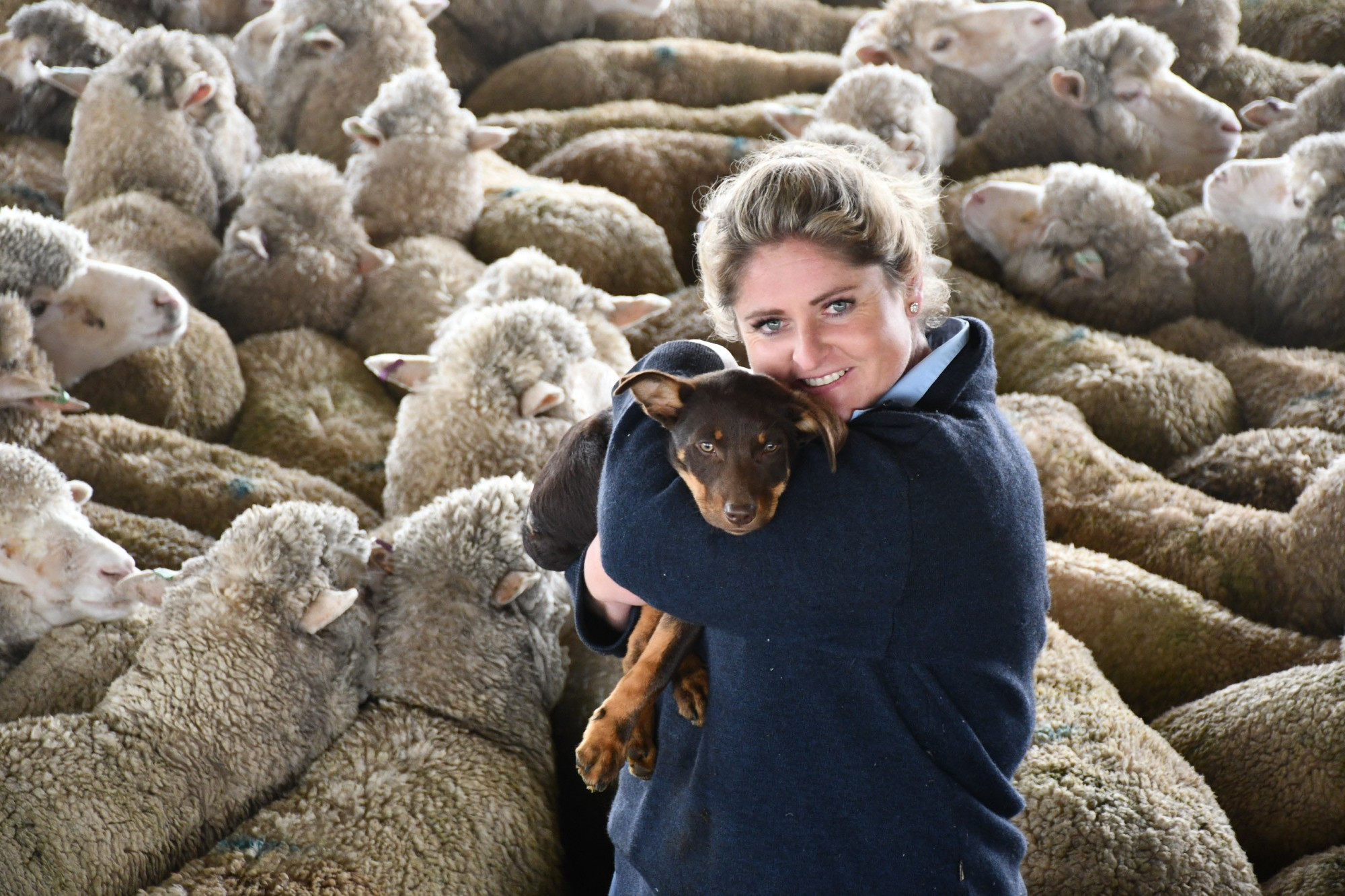General News
31 October, 2022
Newstead wool broker recognised for talent
After having spent almost a decade in the industry, a determined wool broker from Newstead was recently awarded for her achievements and expertise in the field. Gen Butler won the 2022 National Council of Wool Brokers of Australia’s Broker of the...

After having spent almost a decade in the industry, a determined wool broker from Newstead was recently awarded for her achievements and expertise in the field.
Gen Butler won the 2022 National Council of Wool Brokers of Australia’s Broker of the Year Award in August.
“I think it’s a good feather in my cap. And a lot of my clients have been really happy that I won it and they said it’s about time you got some recognition for your hard work,” she said.
“I love what I do. I’m passionate about what I do. And my clients love what I do for them.”
As a broker and shareholder at KareeWool, Ms Butler assists her clients in preparing their wool for auction; visits them during the shearing program; offers advice to wool classers; and ensures that it is all put together in a way that maximises returns for the growers.
Regular shearing is therefore, crucial for her work to progress unhindered.
But like most of the agriculture sector, she has had to bear the brunt of ongoing wet weather conditions.
“The weather impacts everything I do,” she said as rainfall is expected to continue for the rest of the week.
“The sheep obviously need to be dry for the shearer to shear them.
“When you’re putting the wool into a bale, it has to be pressed tight for which it has to be a 100 percent dry. If it’s damp, it will mould, it can then heat up and can self combust if there’s too much moisture in there.”
Despite having grown as a business, KareeWool’s receivables were also down this year compared to last year because of the delay in shearing.
“We would normally have more wool coming in this time of year. But because of the weather, it’s delayed the whole process,” Ms Butler said.
One of her clients, with a big station, shears about 25,000 sheep. They normally take about five to six weeks to complete their program.
“It’s taken an extra three or four weeks to complete purely because of the breaks they’ve had to take to keep the sheep dry and so it affects everyone,” she said.
“The shearers too, they get paid per head and if they can’t work because of the weather, they get no income. It’s a casual employment, so when it’s wet, they’re behind in what they’re earning.”
Another pre-existing challenge in the sector has worsened because of weather conditions — shortage of labour.
“A lot of [shearers] are trying to travel north to try and get into some finer weather so they can work. So when the weather does get better here, we’re short on labour,” Ms Butler said.
Apart from labour, animal welfare is also emerging as a big challenge within the industry — particulary the issue of mulesing and how it is perceived by the wider public.
Mulesing is a painful process of cutting flaps of skin from around a lamb’s breech and tail in order to protect them from flystrike, according to the Royal Society for the Prevention of Cruelty to Animals.
“It’s designed and performed, not because farmers want to do it, but to help the animal in the long run,” Ms Butler said.
“Every sheep now gets pain relief once that process is performed but in terms of an industry and welfare issue, it’s probably our biggest challenge going forward.
“We need to think about how we will get around possibly having to stop the process and what we are going to do instead of that to still maintain the protection for the sheep.”